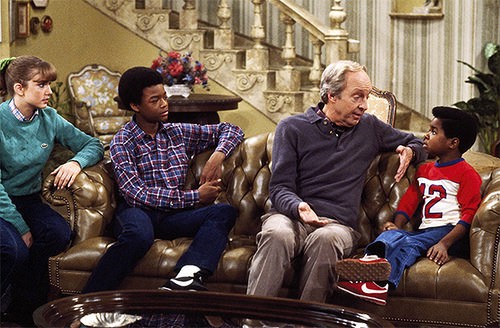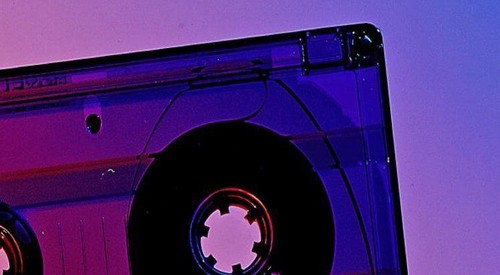Books & Culture
Diff’rent Strokes for Different Folks: How the 80s Approached What TV is Afraid to Talk About Today

by Ayize Jama-Everett

“Yo, Dudley a faggot!”
“What happened?”
“Some white dude did Dudley up the butt.”
“For real? Arnold too?”
“’Course not. But Dudley gay now.”
“It’s only gay if you like it. Dude that did Dudley was a grown-up?”
“Yup. A white dude who owned a bike shop. He was all friendly to Mister Drummond and shit, but then he was giving them drinks and showing them pornos. Arnold left. But Dudley was all about taking his shirt off and shit. Man, Dudley a faggot.”
“Man, if a grown up fucks a kid, it’s not the kid’s fault. It’s a pedophile. Dudley is only gay if he likes it and is like doing it with, like, Arnold or something.”
“Whatever, man. Dudley gay.”
That’s what my childhood friend got out of the very special two-part episode of “The Bicycle Man” on Diff’rent Strokes. I’m going from memory, rather than re-watching the episode on YouTube because I want to talk about how the show impacted two black kids living in the city where the show itself took place. Diff’rent Strokes often put episodes in front of us we were supposed to watch as a family. But not all families are the same.
The Harlem youth that we were — civilized in the best gifted and talented programs the public schools of New York could offer — simply could not understand why Dudley would allow himself to be alone with some old white man.
I clearly remember the conversation happening on the playground of P.S. 125, which borders Columbia University’s campus in Harlem, New York. The landscapes of Harlem and of popular culture have both changed since 1983, when the episode first aired. And just as the communal nature of Harlem’s black community has given way to capitalist market demands in the form of gentrification, so, too, the prime-time family slot on television has ceded its inelegant approach to societal issues to more commercially viable reality television.
The degree to which the producers were successful is, to me, almost irrelevant; without that episode of Diff’rent Strokes I’d never have had an opportunity to discuss my own sexual abuse. As a child, I’d been sexually abused by a black male babysitter. I never repressed the memory and as a result was fortunate enough to contextualize it as something wrong that happened to me that I wasn’t excited to talk about. Understand, that position was better than thinking it was my fault and obsessing about how to assert my masculinity, or completely repressing it and then wondering why I continued to get into unhealthy relationships. I treated it like one of the many beatdowns I faced as a geeky black kid living in a community that didn’t prize education. So when Omar called Dudley “faggot” it raised my hackles. Not because there was anything wrong being a faggot — in ’80s Harlem kid-speak, a faggot was just a particularly flamboyant gay man — but because he was wrong. Someone having sex with you didn’t change how you chose to act. I had a friend whose father was gay and knew that it only meant he loved another man. And I knew that what I experienced, what Dudley experienced, had nothing to do with pleasure. I knew I was right. I knew I could advocate for Dudley, and by proxy, myself.
I didn’t change Omar’s mind. In fact, he told everybody that I wanted to do Dudley “up the butt.” People came to me and laughed, then asked questions about the difference between pedophilia, homosexuality, rape . . . and somehow, incest got into the conversation. I wondered then and still do now, how many of those kids had been molested, but then I didn’t have the words, the sense of safety, or the support to talk about it. I hear even Todd Bridges, Willis on the show, felt awkward about the episode due to his own molestation.
I didn’t have all the answers. And I definitely had no answer for why the hell Dudley would stay with the old white dude in his basement watching porn with his shirt off, and expect nothing to happen. I still think that’s probably one of the most problematic components of that episode. But what I praise the writers and producers of the show for is presenting at least one young black male not as a sexual predator, but as a victim of one. I appreciate what the Norman Lears of the time attempted, in trying to set up ongoing conversations about real issues that most programs weren’t able to address. They didn’t fall into the hole that “nonWestern-scripted reality television” has left us in today: vapid narratives populated by “real” people afraid to speak about the real world harms and joys that we, as communal creatures, face every day.
For that, Bud Yorkin, Norman Lear, et al., I thank you.
(For a detailed breakdown of the two-part episode “The Bicycle Man” I refer you to The A.V. Club’s masterful roundtable.)









